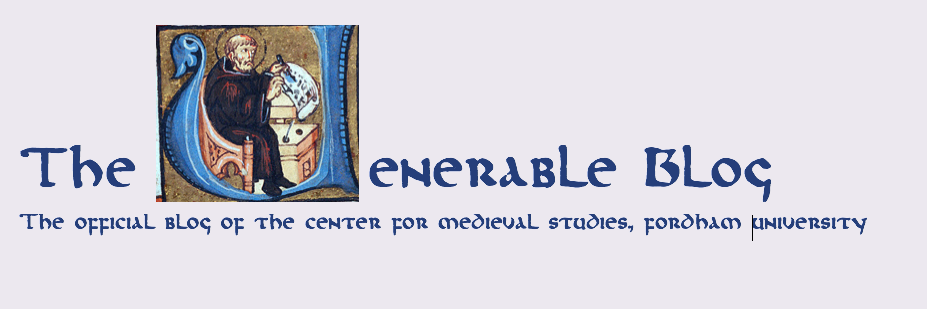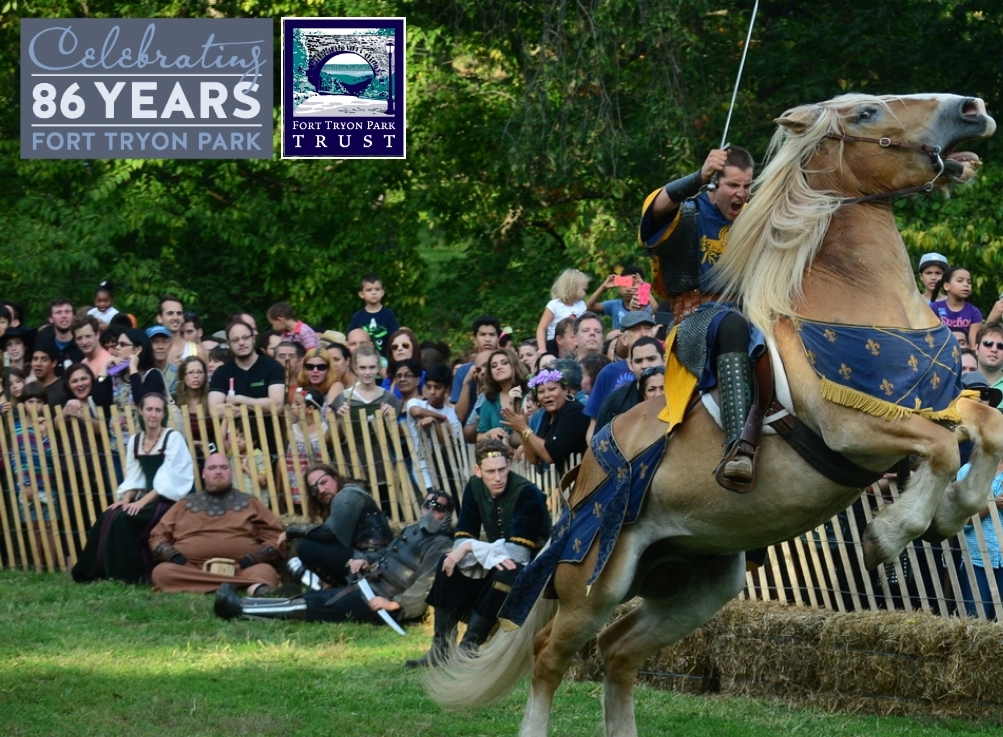
On October 2nd, the Annual Medieval Festival was held at Fort Tryon Park. This event is organized by NYC Parks and the Washington Heights and Inwood Development Corporation, with the support of the Fort Tryon Park Trust. The festival “brings life to the customs and spirit of the Middle Ages for all to enjoy.” With many large and interesting banners, guests and performers in thematic costumes, food stalls selling fried dough and turkey legs, and a variety of market stalls, everyone of all ages was able to enjoy and immerse themselves in all things medieval.
Medieval and Renaissance fairs like this are an essential component in the public history of the Middle Ages. These events are a great deal more accessible to non-academics than any of our books will ever be: I have not yet heard of a parent proposing a verbal reading of the Chronicon Thietmari as a fun afternoon activity to their children. Whether we as medievalists like it or not, glorious royalty, chivalrous steel-plated warriors, and an eternally toiling and miserable peasantry are central to the public’s imagination of the Middle Ages.
This limited view of the Middle Ages is made dangerous by the existence of those who present the Middle Ages in misleading ways to justify their modern-day political and social perspectives. Trying to counter such ideas leaves medievalists in a tough spot. The methods that we use understand the Middle Ages, primary sources and modern scholarship, aren’t always the most practical tools to inform the general public. The task for medievalists must be to formulate a public history which is informed by scholarship, but is presented in such a way that it can be not only tolerable, but enjoyable, to the general public.
This sort of public-enjoyment oriented history was a large motivation for the Fordham Medieval Department’s participation in the Fort Tryon Medieval Festival. In line with this, we operated an Ask a Medievalist booth where passersby could ask questions to people familiar with current scholarship, hosted some lectures, and held a poetry slam using medieval languages. Expect more blog posts about these undertakings in the near future.
In addition to the events operated by Fordham, the festivals also showcased many events like tournaments, music performances, and a lively parade led by knights!
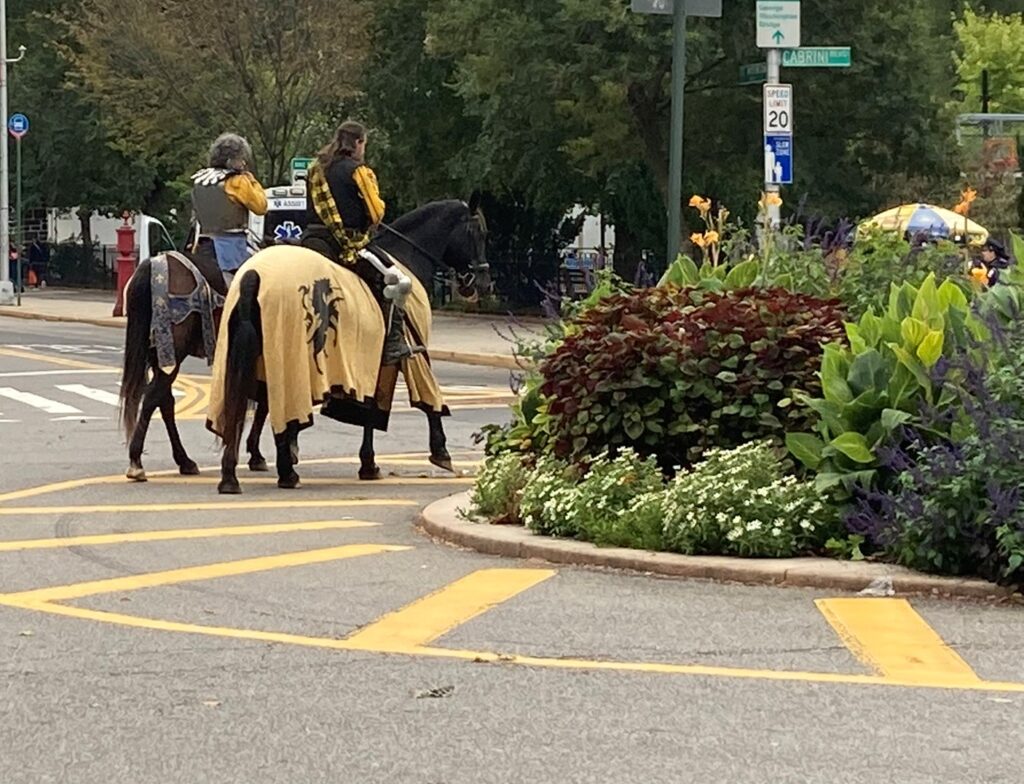
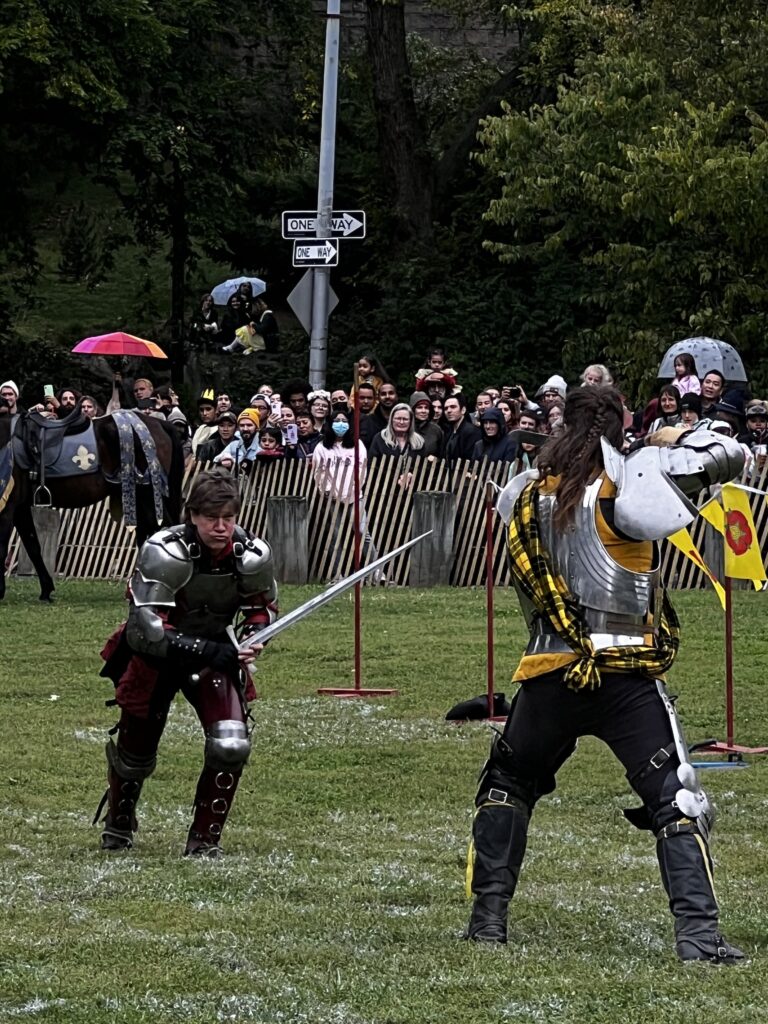
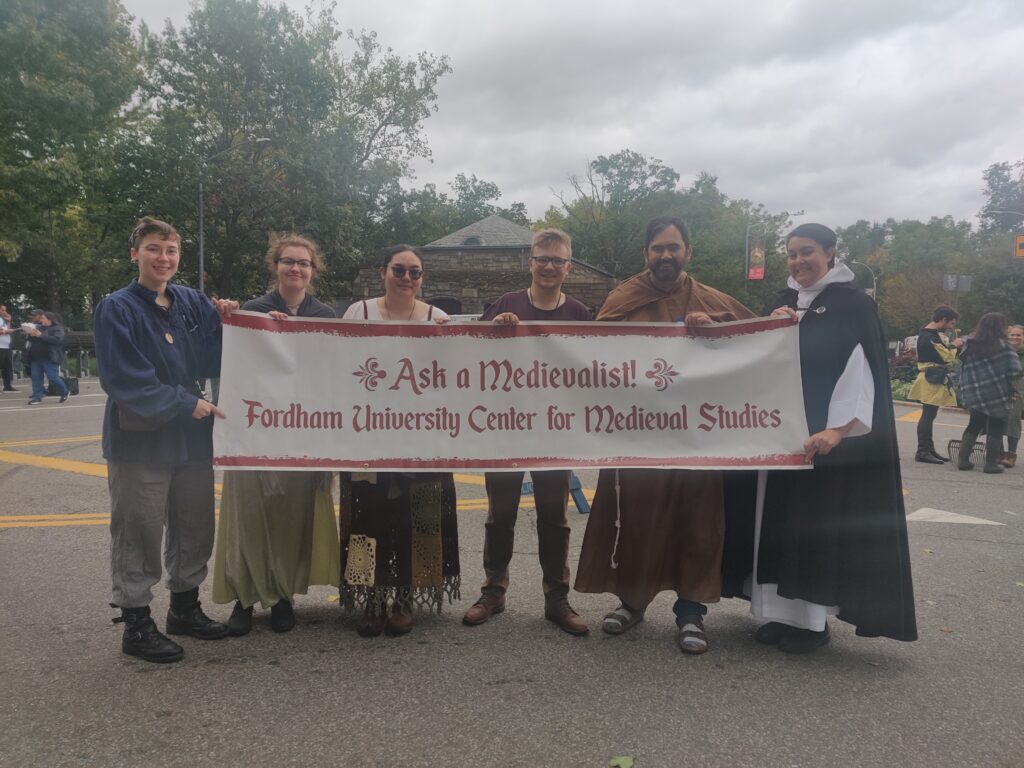
Watch the graduate students from Fordham’s Center for Medieval Studies participate in the parade!
